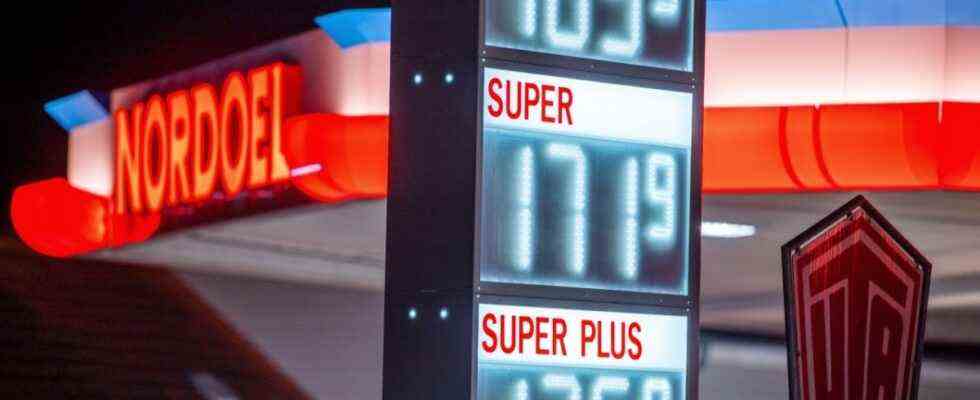In view of record prices for diesel and petrol, the new CDU chairman Friedrich Merz is fueling the debate about lower taxes on fuel and energy. “The new federal government could curb the massive rise in energy costs by reducing state taxes,” said Merz picture on sunday. With a view to Poland, which has just reduced fuel taxes, Merz said: “That would be an option that would immediately relieve millions of commuters.” On February 1, the government in Warsaw reduced VAT on fuel, among other things, from 23 to eight percent.
ADAC Traffic President Gerhard Hillebrand called for the distance allowance to be increased to 38 cents per kilometer immediately. “The burden of the immensely increased fuel prices threatens to mean that many commuters can no longer afford to drive to work,” Hillebrand told the newspaper. Something similar had already been demanded last week by Union parliamentary group leader Ulrich Lange (CSU), who accused the federal government of inaction and brought up a dynamic distance allowance, i.e. one that would increase with fuel prices.
The so-called economics Monika Schnitzer, on the other hand, sees an opportunity for the energy transition in the sharp rise in energy prices. “Actually, it’s the best advertisement for the energy transition. It offers the chance to become less dependent on gas and oil imports,” said Schnitzer New Osnabrück newspaper. The faster the energy transition progresses, the more independent one will be both economically and politically in the future. The Economic Wise Men are an advisory body to the federal government.
The distance allowance, also known as a commuter allowance, compensates at least in part for the cost of traveling between home and work via the tax return. As part of its climate protection program, the old federal government had already raised the flat rate from 30 to 35 cents for every 21 kilometers at the beginning of last year. From 2024 onwards it will increase by a further three cents for a period of three years to 38 cents per kilometer from the 21st kilometer. Low-income earners who do not pay income tax receive a mobility bonus.
Both are intended to cushion higher taxes on fuel, which are primarily caused by the CO₂ tax. This has been in effect since 2021, rose slightly again at the beginning of the year and is now around nine (petrol) to ten cents (diesel) per liter, according to the Federal Ministry of Economics.
At the beginning of 2016, diesel cost just under one euro on average
In the past week, fuel prices had reached new highs. According to the ADAC, a liter of Super E10 cost 1.712 euros on average across Germany, which is 3.1 cents more than in the previous week. That was just above the previous record value in September 2012. At that time, the price for a liter was 1.709 euros. Drivers had to pay an average of 1.640 euros for diesel last week. The increase is also so violent because fuel prices had fallen sharply in the meantime. At the beginning of 2016, diesel cost an average of just under one euro per liter.
Economists attribute the fuel prices, which have been rising for weeks, primarily to the high price of oil, the global economy is growing and driving demand for fuel. Added to this are political uncertainties such as the conflict on the Russian-Ukrainian border. However, a large part of the fuel price at the pump is made up of taxes and duties; according to the ADAC, it is more than 65 cents per liter for petrol.

